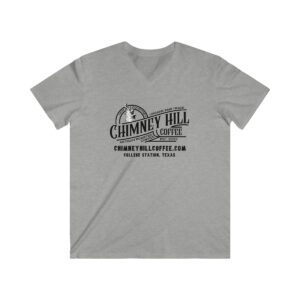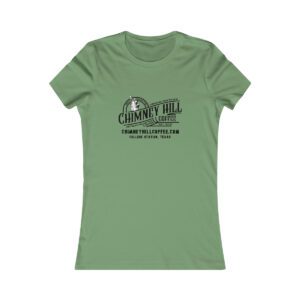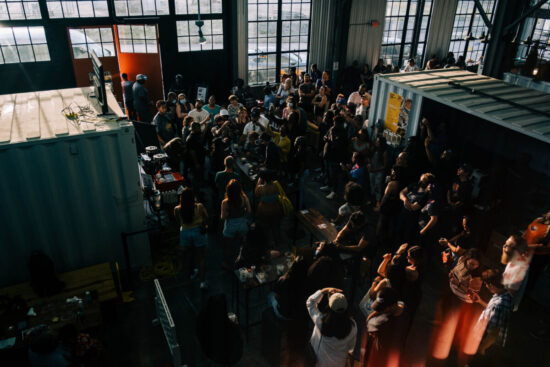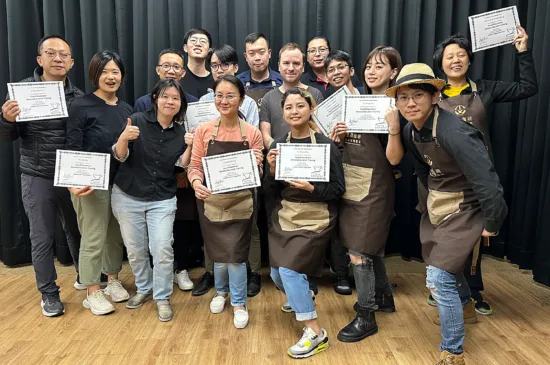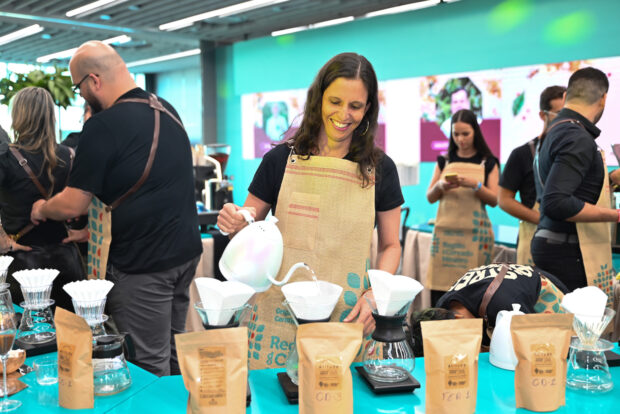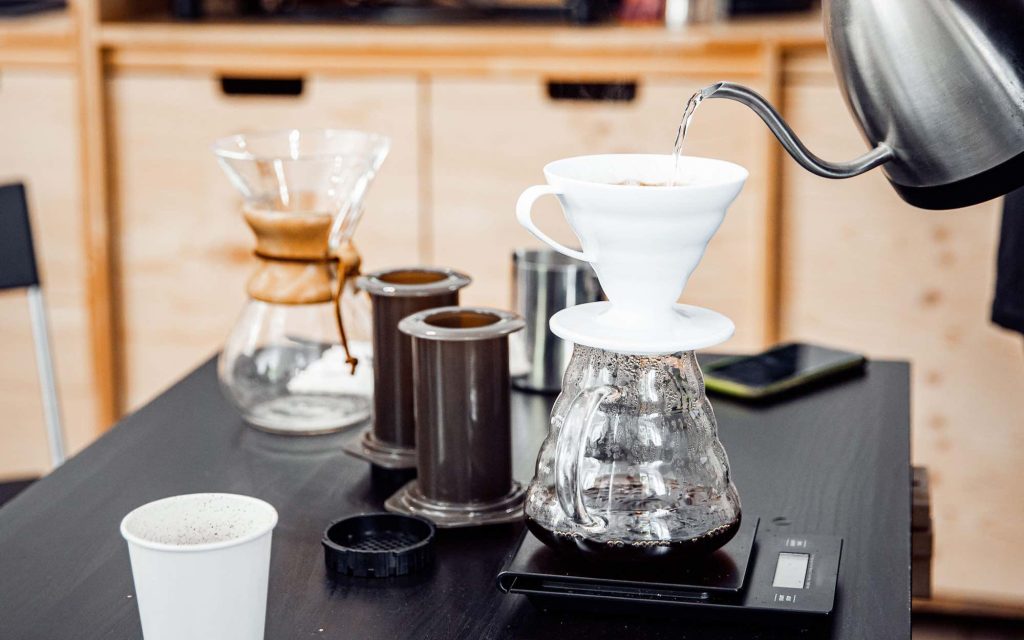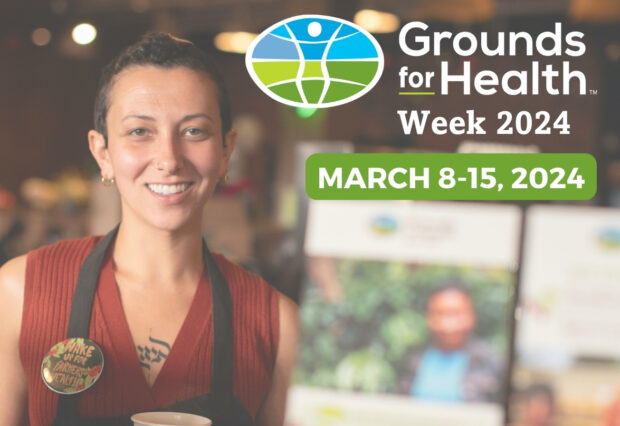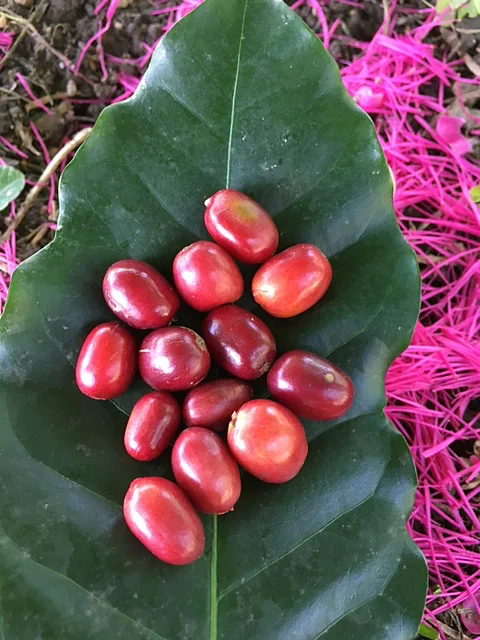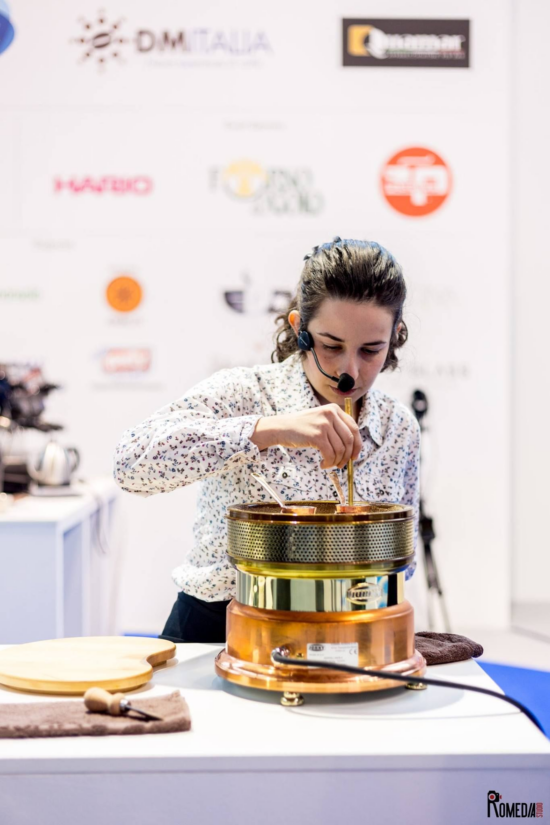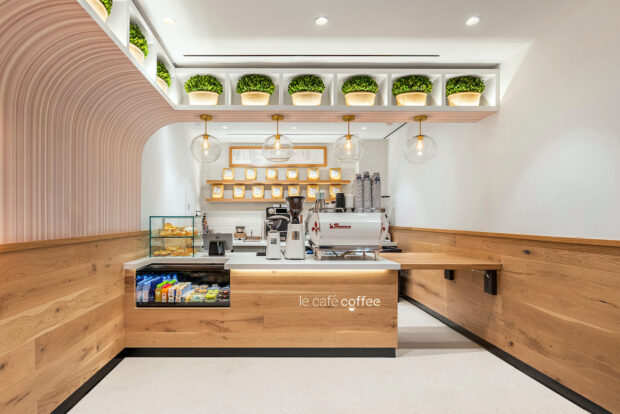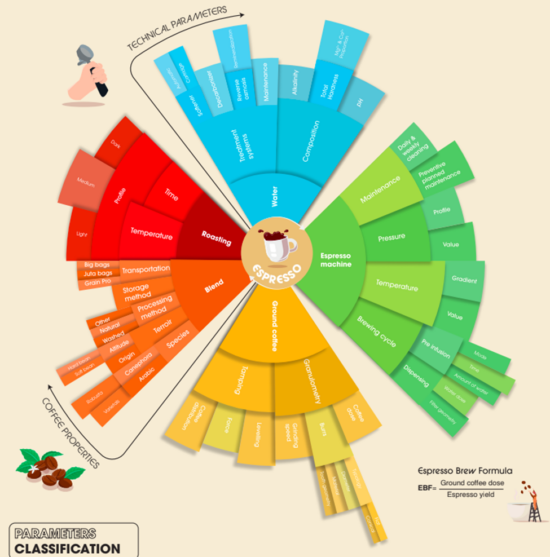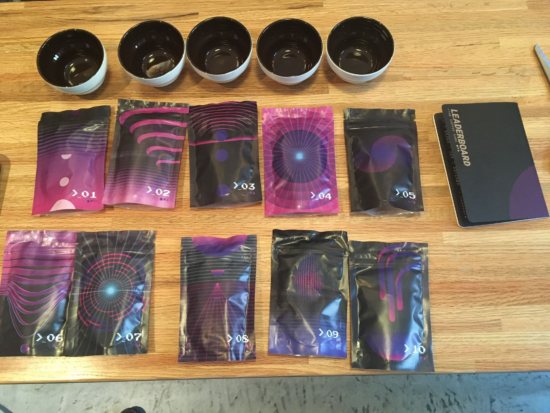The Malaysian capital is often visited in a hurry, but visitors who take the time to explore will discover a welcoming city, thanks in part to its friendly specialty cafés. BY TANYA NANETTI SENIOR ONLINE CORRESPONDENT Photos by Tanya Nanetti Kuala Lumpur, the capital...
Florencia y Fortunata: A Café Empowering Women in Peru
Florencia y Fortunata: A Café Empowering Women in Peru
Florencia y Fortunata: A Café Empowering Women in Peru
Florencia y Fortunata: A Café Empowering Women in Peru
Florencia y Fortunata: A Café Empowering Women in Peru
Florencia y Fortunata: A Café Empowering Women in Peru
Thread Coffee Roasters Opens Tailor-Made Roastery in Baltimore
The interwoven actions of Thread Coffee Roasters in Baltimore are finding exponentially more space this week with the grand opening of a brand-new production roastery and training lab. The worker-owned...
Toronto’s Pilot Coffee Roasters Acquiring Bridgehead Coffee for $3.6 Million
Toronto, Ontario-based specialty coffee roaster and retailer Pilot Coffee Roasters is acquiring Ottawa-based Bridgehead Coffee in a deal worth approximately US$3.6 million. Bridgehead, which has 21 coffee shop locations throughout...
Baking With Coffee For Beginners
This article is from the coffee website Sprudge at http://sprudge.com. This is the RSS feed version. Where to get started when introducing coffee to your bakes.
Bypass coffee brewing: How can it improve extraction?
There is a lot of science to brewing coffee. Whether knowingly or unknowingly, we trigger – and try to control – an almost endless number of chemical reactions to achieve the perfect extraction. To do so, we have to tweak different variables – such as grind size,...
Hawaiian Legislators Introduce Bills for Stricter Coffee Labeling
Legislators representing the Kona district of Hawaii have introduced a series of bills that would require more strict labeling requirements for single-origin coffees and blends containing Hawaiian-grown coffees. Some Kona...
New AFCA Director Gilbert Gatali on the 20th African Fine Coffees Conference
As the African Fine Coffees Association (AFCA) prepares for the 20th iteration of its flagship event, the African Fine Coffees Conference and Exhibition, the group is operating under new executive...
Philadelphia’s Café Don Pedro Seeks to Build Up Small Businesses
A Dominican-owned coffee roasting company called Café Don Pedro recently launched in Philadelphia with ambitions for direct trading and boosting more Latino-owned small businesses throughout its supply and distribution networks....
How much do you over-extract coffee in recipes?
This is sort of an odd question, but it's not a troll. While I love brewing specialty coffee, I also enjoy frappes (with or without ice cream). A major hurdle when using my espresso has been that while the final beverage tastes fine, the coffee is just too high...
Sprudge Maps Spotlight: Little Bear Coffee In Albuquerque, NM
This article is from the coffee website Sprudge at http://sprudge.com. This is the RSS feed version. Little Bear Coffee in Albuquerque, New Mexico.
Starbucks Will Hold their Own Barista Championship Thank You Very Much
This article is from the coffee website Sprudge at http://sprudge.com. This is the RSS feed version. The North American Barista Championship is expected to host over 15,000 Starbucks hourly workers.
What I Learned from My First Tea Ceremony
After taking in a brief moment of a tea ceremony in Thailand, I finally had the chance to participate in the full experience recently in Malaysia. BY TANYA NANETTI SENIOR ONLINE CORRESPONDENT Photos by Tanya Nanetti In the years that I worked as a barista in a café,...
Why it’s easier for wealthier producers to grow specialty coffee
It takes money – and sometimes a lot – to grow specialty coffee. Producers not only need to continuously maintain and improve quality and yields, but they also have to invest back into their farms. Whether it’s replacing equipment and machinery or planting more...
Does specialty Robusta exist?
Hello! Has anyone tried 'specialty robusta'? I work with specialty cacao, and I often observe Robusta shrubs being cultivated at lower altitudes alongside cacao trees. Some farmers are experimenting with carbonic maceration to enhance the marketability of...
[MOD] The Daily Question Thread
Welcome to the daily /r/Coffee question thread! There are no stupid questions here, ask a question and get an answer! We all have to start somewhere and sometimes it is hard to figure out just what you are doing right or doing wrong. Luckily, the /r/Coffee community...
The Sprudge Guide To Coffee Shops In Vancouver, BC
This article is from the coffee website Sprudge at http://sprudge.com. This is the RSS feed version. Where to drink coffee in Vancouver, British Columbia, Canada.
Coffee Machine (High density use)
Hi everyone, i am new in this coffee world and i am looking to buy me a coffee machine to setup a small business. I am looking for affordable machine that is good for high density use. Im open for any recommendation and opinion. Thank you guys! Here is what ive found...
Which to buy first?
Hi there, mostly a lurker until now. I'm trying to incentivize myself towards some goals and decided that rewarding myself with a better coffee set up upon reaching those goals would be great. I plan to get myself one nice thing when I reach my intermediate goal...
[MOD] The Official Deal Thread
Welcome to the /r/Coffee deal and promotional thread! In this weekly thread, industry folk can post upcoming deals or other promotions their companies are holding, or promote new products to /r/Coffee subscribers! Regular users can also post deals they come across....
The London Coffee Festival has just more than doubled its ticket price
Last year: £18 This year: £38 Unbelievable. It’s the same venue and same setup. I’m just an ordinary coffee fan and every year I spend a lot buying roasts and equipment there. submitted by /u/gahgeer-is-back [link] [comments]
Explain making good coffee to me like I’m 5.
Hi everyone, I’m not new to drinking coffee, but I’d like to start making it (well) at home myself. I’m totally clueless. I have an old Keurig that I rarely use, as well as a basic Mr. Coffee maker. Usually I buy dark roast ground coffee (I do like a good, strong cup...
Seeking instant test for rough caffeine level in coffee
About once a month, some inattentive barista gives me regular coffee by mistake, which is a bummer. I drink decaf. So when I get coffee at a cafe, I'd like to do an instant test of the rough caffeine level by dipping a strip into the coffee. Something analogous...
Questions/thoughts on cardamom-forward "thermal shock" processed coffees.
Hey everyone, Having a cup of Buttercream from September roasters and got to thinking. This is the second thermal-shock processed coffee I have had with this huge, distinctive cardamom note (The other being DAK milky cake which is also from Colombia, but from a...
Third Wave Coffee brands
Greetings to all, I am reaching out to this knowledgeable community with a query regarding the recognition of coffee brands within the third wave coffee movement. Is there an existing, publicly accessible list that categorizes and acknowledges coffee brands as part of...
Florencia y Fortunata: A Café Empowering Women in Peru
The Cusco café, founded by Carolina Peralta Minaya, sells coffee from women producers and features women demonstrating their skills behind the bar.
BY JORDAN BUCHANAN
BARISTA MAGAZINE ONLINE
Photos courtesy of Carolina Peralta Minaya
Traceability, sustainability, and conscientiousness are key values pervading the specialty-coffee trade. For many consumers and traders, these values inform their decision to get involved in specialty coffee; this is what makes specialty coffee special for them. Most often, we see these values enacted through empowerment projects that work closely with coffee-producing communities at farms.
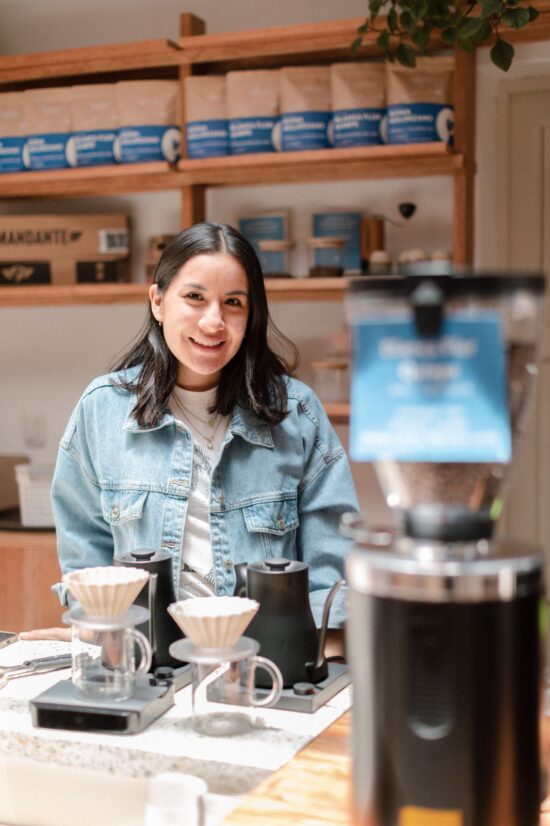
Meet Carolina Peralta Minaya
Carolina Peralta Minaya of Florencia y Fortunata, located in Cusco, Peru, is bringing female empowerment to the urban part of the specialty trade: the café. Her coffee-shop project endeavors to empower and make women visible throughout the coffee chain. The emphasis on women at the final stage of the chain makes for a unique example of how specialty coffee can be a source of positive change in society.
Carolina spent a lot of time conceptualizing and investigating how she could merge together specialty café culture in Peru with female empowerment. After studying gender politics, she went to Santa Teresa and Jaén, towns in the Peruvian coffee-producing regions of Cusco and Cajamarca, respectively. There, Carolina examined gender dynamics at coffee farms in the areas.
The Beginnings of Florencia y Fortunata
During this research, in 2020, Carolina met Consuelo Rubio and Blanca Flor Quispe in Jaén, Cajamarca. The mother and daughter were selling coffee using the name of their deceased husband and father, respectively, who was the original owner of the farm. Consuela felt that she needed to use the name of her deceased husband to gain recognition and sufficient payment for her coffee production. The discreet practice of using their male family members’ names was common among female farmers; this fact informed Carolina’s key ambition to increase the visibility of women in the coffee trade.
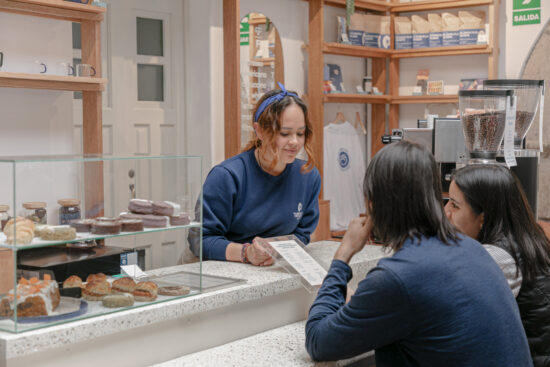
Something else stood out to Carolina: the distinct lack of women involved in coffee competitions and associations in Peru and at the global level. She observed closely the low representation and participation of women at coffee events. This examination of urban women and coffee also influenced her desire to improve conditions for women in cities. Following this formative period of research and contemplation, in May 2021, Carolina launched Florencia y Fortunata as a specialty café in Cusco.
A Business, a Social Project
Florencia y Fortunata thus came into existence as a distinct social project: a hybrid between private business and NGO. The café is the center of operations for a broad effort to improve visibility and opportunities for women, as well as to challenge social norms. The coffee that Carolina purchases for her café supports women at the start of the coffee chain. By providing reliable trade and cooperation for female farmers, she represents these women’s valuable work through the coffee shop. Carolina has successfully collaborated with female farmers to increase their image and pride as the core name and face of their products.
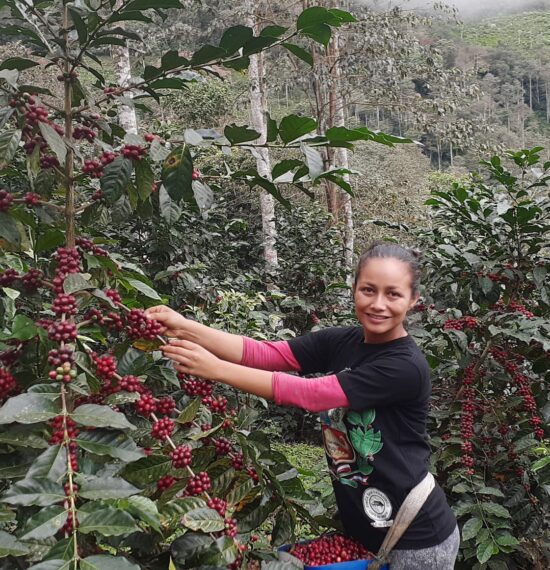
Urban coffee workers are often overlooked in social projects in coffee, especially at origin. But gender disparity in the urban environment does not slip past Carolina’s diligent eye for social issues. Florencia y Fortunata only employs women as baristas; increasing the visibility of women demonstrates their equal ability to work in a society that often considers women’s social roles to be elsewhere. Walking into Florencia y Fortunata, a female barista will greet you and gladly explain why this project exists. Then she’ll serve you a perfectly extracted drink of your choice; the baristas are confronting social bias face-on.
Working with Women
Providing quality training and empowerment for female baristas is core to the project. Carolina ensures that the training at the café helps her employees to understand gender norms and discrimination to enable them to navigate these issues in their own lives. Carolina prepares her employees to achieve their own aspirations in life; working for Florencia y Fortunata is a stepping stone for women, according to Carolina. It is an opportunity to bring women into the workplace, build their confidence, and advance their own hopes for success. She describes the work experience as a trampoline for her staff to reach their own aspirations and successes—they grow and they move on.
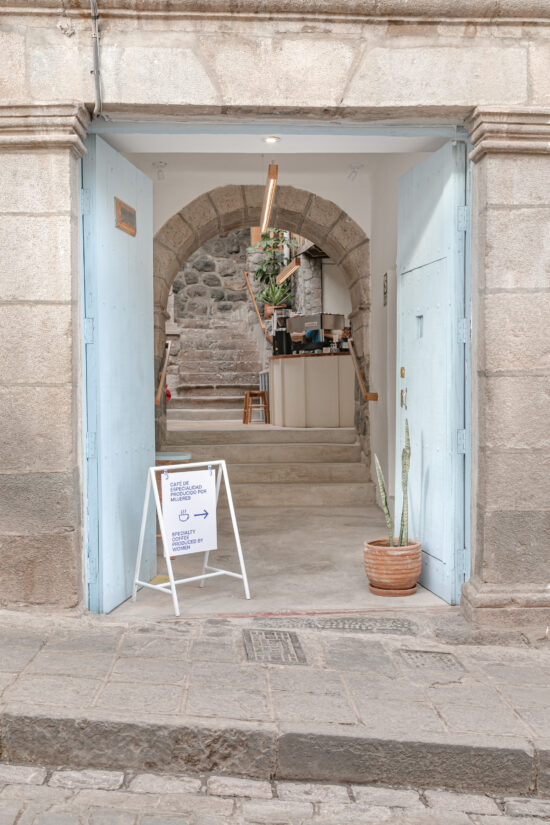
Empowering women in society and confronting social prejudice towards women is a collective effort to change social norms in Peru. Carolina did not want a business that would just make money. She wanted a project that satisfied her desire to have a positive impact on people. She pushes back against the traditional business model of “profit over people,” and stands strong in the face of conservative social norms in order to facilitate the growth of women and society as a whole.
This challenge to gender norms is an invaluable contribution of this project. Whether it be in urban or rural spaces, we need advocates in the coffee trade who are willing to resist discriminatory and oppressive social norms that reinforce inequality.
ABOUT THE AUTHOR
Jordan Buchanan (he/they) is completing their Ph.D. in Latin American history at UC San Diego. Their research focuses on the growth of specialty café cultures in producer nations in Latin America. Jordan grew up in Scotland and currently lives between there and Mexico when not doing doctoral work in San Diego. After purchasing their first AeroPress, Jordan has been an avid specialty-coffee enthusiast, which has added a new perspective to their lust for travel and exploration.
The post Florencia y Fortunata: A Café Empowering Women in Peru appeared first on Barista Magazine Online.


